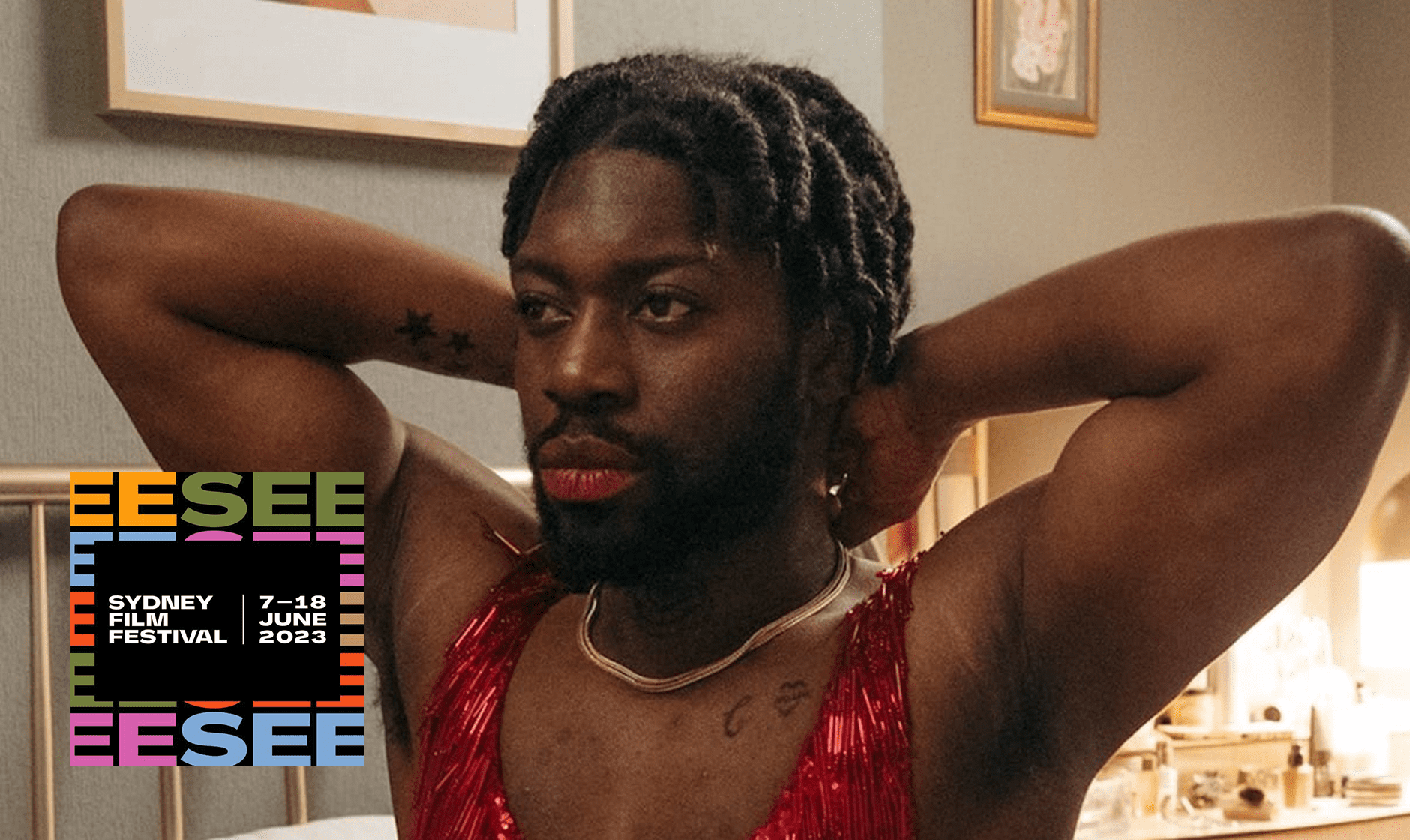He just likes to get pretty sometimes.
Written and directed by Dionne Edwards, Pretty Red Dress is a solid debut that playfully investigates expectations of black, working-class masculinity. But, despite a few great costumes and the Tina Turner heavy soundtrack, this family drama is an incredibly stressful watch.
Set in the suburbs of South London, the film follows main character Travis (Natey Jones) in the weeks after he is released from prison and reunited with his partner Candice (Alexandra Burke) and teenage daughter Kenisha (Temilola Olatunbosun). Struggling to find his place and reintegrate into the family that has changed so much in his absence, the pressures Travis faces are compounded by his dead-end job, his domineering older brother, and the allure of the red dress he bought for his wife that hangs on the back of their bedroom door. Travis’ journey of self discovery and self expression, fueled by his compulsion to try on the eponymous red dress and an assortment of his wife’s undergarments, is mirrored nicely by his daughter’s coming out story. At the same time, Candice is busy working long shifts at a supermarket and auditioning to play Tina Turner in a West-end musical — struggling to support both her own dreams and be present for her family.
At this point, it’s worth mentioning that the entire plot of this film could be circumvented if a single door in this flat had a lock on it. Kenisha walks in on her parents having sex, then comes home another day to Travis trying on red lipstick. Candice walks in on Travis wearing the dress, and Kenisha walks in on them fighting about it. Later in the film, Kenisha walks in on yet another, albeit more climactic, fight between the couple. Arguably it’s a weakness in the screenwriting that several turning points of the film rely on family members barging in on each other but, as someone who also happens to live in a house without any indoor locks — it’s nice to see a bit of representation.
The performances in this film, especially for a cast made up of largely newcomers, are impressive. Jones and Olatunbosun are a convincing father-daughter pair, and their mannerisms are delightfully similar to watch on screen. Alexandra Burke’s performance is also impressive, both when she belts Rolling on the River in her audition sequences and in conversation with the other characters.
As the film progressed, I found myself wishing for more backstory between Candice and Travis to help ground the crisis in which we find their current relationship. We know that the two aren’t married and that their daughter was unplanned, but we get precious little insight into the established dynamic between the two, save for the sense that it has fundamentally changed. This ambiguity works both for and against the film. I’m glad that Travis’ experiences and inner conflicts are allowed to exist separately from politicised discourse about his identity, because the film feels so much like a glimpse into the very beginning of his reckoning with his sexuality and gender identity. At the same time, the ambiguous note the film ends on won’t be everybody’s cup of tea. There’s no tangible resolution to the story, and audiences come away with the sense that the character’s haven’t meaningfully addressed any of their issues with each other. Whether this feels poignant or unsatisfying is a matter of personal taste.
Pretty Red Dress is a well crafted film that spends its run time focusing on the interactions between Travis and various members of his family and community. Although viewers come away with a deep affection for Travis, Candice and Kenisha (a testament to the strength of the performances and Edwards’ direction), they do not come away with many answers about what will come next for the family.





